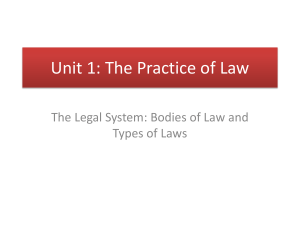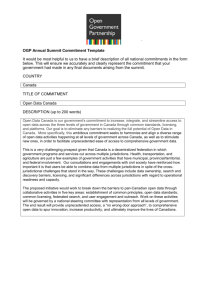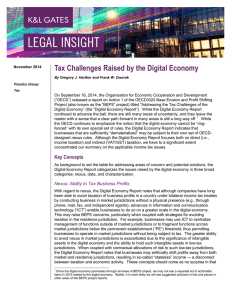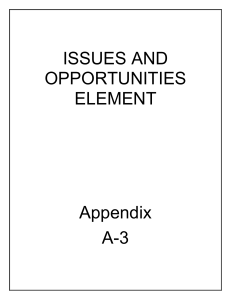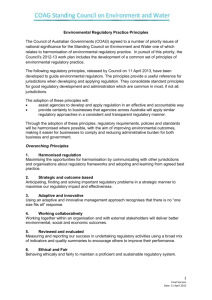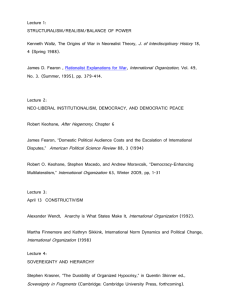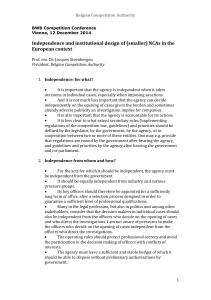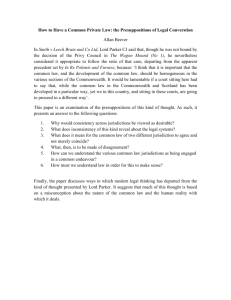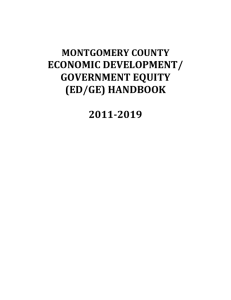David Duff
advertisement
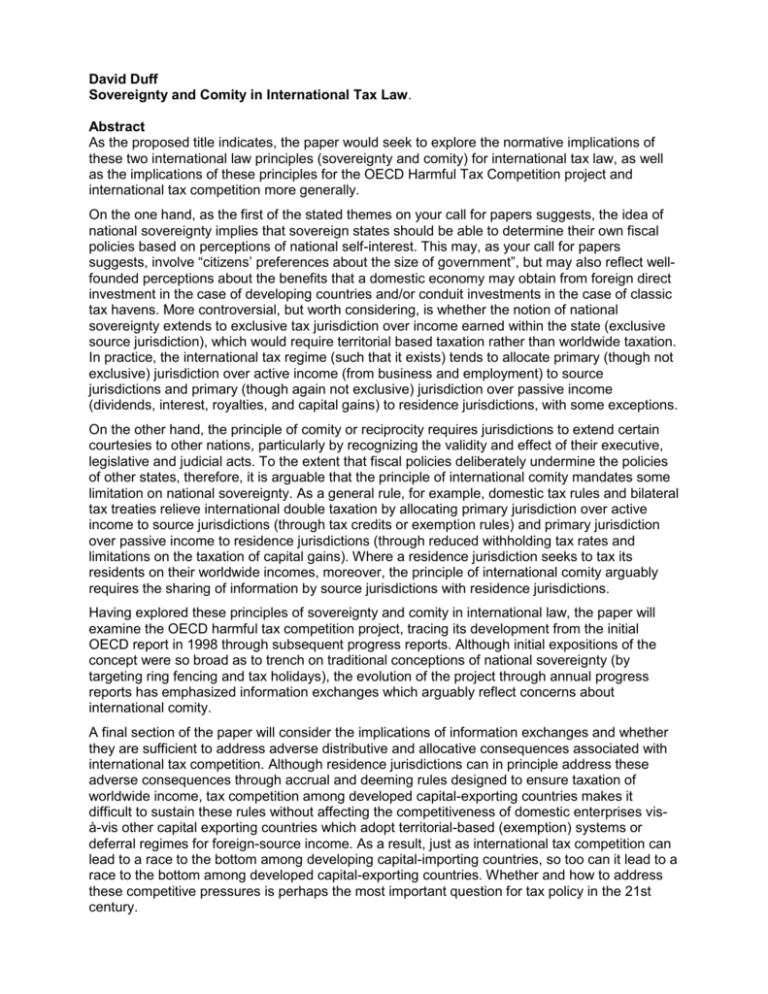
David Duff Sovereignty and Comity in International Tax Law. Abstract As the proposed title indicates, the paper would seek to explore the normative implications of these two international law principles (sovereignty and comity) for international tax law, as well as the implications of these principles for the OECD Harmful Tax Competition project and international tax competition more generally. On the one hand, as the first of the stated themes on your call for papers suggests, the idea of national sovereignty implies that sovereign states should be able to determine their own fiscal policies based on perceptions of national self-interest. This may, as your call for papers suggests, involve “citizens’ preferences about the size of government”, but may also reflect wellfounded perceptions about the benefits that a domestic economy may obtain from foreign direct investment in the case of developing countries and/or conduit investments in the case of classic tax havens. More controversial, but worth considering, is whether the notion of national sovereignty extends to exclusive tax jurisdiction over income earned within the state (exclusive source jurisdiction), which would require territorial based taxation rather than worldwide taxation. In practice, the international tax regime (such that it exists) tends to allocate primary (though not exclusive) jurisdiction over active income (from business and employment) to source jurisdictions and primary (though again not exclusive) jurisdiction over passive income (dividends, interest, royalties, and capital gains) to residence jurisdictions, with some exceptions. On the other hand, the principle of comity or reciprocity requires jurisdictions to extend certain courtesies to other nations, particularly by recognizing the validity and effect of their executive, legislative and judicial acts. To the extent that fiscal policies deliberately undermine the policies of other states, therefore, it is arguable that the principle of international comity mandates some limitation on national sovereignty. As a general rule, for example, domestic tax rules and bilateral tax treaties relieve international double taxation by allocating primary jurisdiction over active income to source jurisdictions (through tax credits or exemption rules) and primary jurisdiction over passive income to residence jurisdictions (through reduced withholding tax rates and limitations on the taxation of capital gains). Where a residence jurisdiction seeks to tax its residents on their worldwide incomes, moreover, the principle of international comity arguably requires the sharing of information by source jurisdictions with residence jurisdictions. Having explored these principles of sovereignty and comity in international law, the paper will examine the OECD harmful tax competition project, tracing its development from the initial OECD report in 1998 through subsequent progress reports. Although initial expositions of the concept were so broad as to trench on traditional conceptions of national sovereignty (by targeting ring fencing and tax holidays), the evolution of the project through annual progress reports has emphasized information exchanges which arguably reflect concerns about international comity. A final section of the paper will consider the implications of information exchanges and whether they are sufficient to address adverse distributive and allocative consequences associated with international tax competition. Although residence jurisdictions can in principle address these adverse consequences through accrual and deeming rules designed to ensure taxation of worldwide income, tax competition among developed capital-exporting countries makes it difficult to sustain these rules without affecting the competitiveness of domestic enterprises visà-vis other capital exporting countries which adopt territorial-based (exemption) systems or deferral regimes for foreign-source income. As a result, just as international tax competition can lead to a race to the bottom among developing capital-importing countries, so too can it lead to a race to the bottom among developed capital-exporting countries. Whether and how to address these competitive pressures is perhaps the most important question for tax policy in the 21st century.

